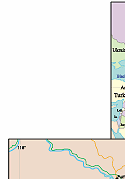 |
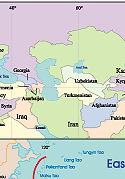 |
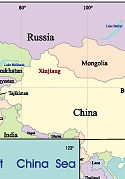 |
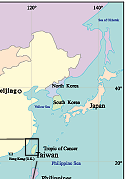 |
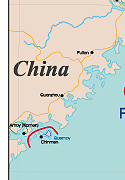 |
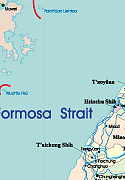 |
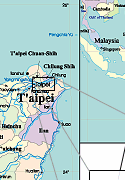 |
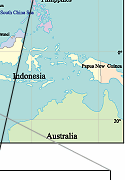 |
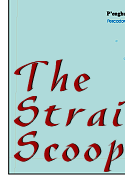 |
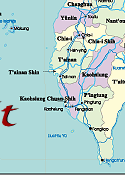 |
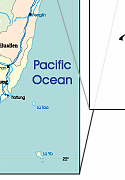 |
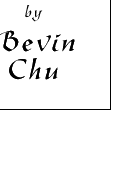 |
|
December 10, 1999 International
Trade and National Security:
|
PROTECTIONISTS ALSO VIOLATE AMERICANS' RIGHT TO ENGAGE IN FREE TRADEProtectionist opponents of international free trade, laborite, luddite and nativist alike, have absolutely, positively, no right whatsoever to forcibly prevent American and foreign businessmen who wish to engage in mutually agreeable international trade from doing so. Protectionists, like warfare statists, invariably resort to the Orwellian vocabulary of collectivism. They can be counted on to invoke the "w" word, "we" and the "o" word, "our." "We" must protect "our" industries, for the sake of "our" national interest, as if "our" national interest could ever be other than the individual interests of millions of sovereign and independent American citizens. Protectionists operate under a mighty peculiar set of unexamined assumptions . They seem to imagine that just because an American businessman is a fellow American that somehow the businessman owes the protectionist some sort of special consideration, beyond refraining from violating the protectionist's life, liberty and property. Protectionists seem to imagine merely because they are American citizens that private American businesses, which are the private property of other private American citizens, are somehow "our" industries. Excuse me, but the assumption that "we're all in this together" and therefore owe each some vague, undefined obligation beyond refraining from violating each others' individual rights, is the central premise of communism, fascism, democratic socialism and welfare statism. It is most certainly NOT the guiding premise which inspired our Founding Fathers to wage the American Revolution. Unless the protectionist owns shares of stock in the company in question, the company is not "our" company, it is somebody else's' company. Merely being a citizen of the same country does not give one the right to dictate how someone else disposes of his economic assets. But what if the protectionist is an employee of the company in question? Doesn't he have therefore a say in whether "his" company moves its plants or outsources its labor overseas? Doesn't he have a "right" to "his" job? Sorry, he does not. Not unless he owns shares in the company and can persuade a majority of shareholders to keep him on. What the company owes him is wages or a salary. What he owes the company is his manual or mental labor. The employee's relationship to the company he works for is morally and ethically no different from that between the protectionist's neighborhood barber and himself. His barber cuts the protectionist's hair. The protectionist pays the barber for services rendered. End of story. Just as the protectionist has no obligation to patronize the same barber in perpetuity, so the protectionist's employer has no obligation to employ the protectionist in perpetuity. Being an American citizen does not mean that other Americans' bank accounts are the common property of "all Americans," welfare parasites to the contrary notwithstanding. By the same token, being an American citizen does not mean that other Americans' private property, in the form of business enterprises such as traditional manufacturing plants, can be suddenly reclassified as the common property of all Americans. This is not to equate honest, hardworking blue collar workers in sunset industries with welfare parasites. Absolutely not. It is merely to remind protectionists of the fundamental distinction between capitalism and communism. Laissez faire capitalists know that not only is there no such thing as a free lunch, there is no such thing as an iron ricebowl either. Both Maoist China and Japan, Inc. found that out, the hard way. The most one can do is delay the inevitable day of reckoning. Radical economic reformer Zhu Rongi caught on to this fact about twenty years ago, and was subjected to Maoist thought reform for talking about it. Apparently many otherwise intelligent mainstream American intellectuals, including some ostensibly on the capitalist right, still haven't figured it out. WARFARE STATISTS VIOLATE AMERICANS' INTELLECTUAL PROPERTY RIGHTSIn case that was painful, there's more. Conservative warfare statists like Republican Congressman Chris Cox of California routinely prattle on about restricting the export of "American technology" and "American industrial secrets." Pardon me Chris, but unless the technology in question was developed as socialized science in government laboratories, by scientists and engineers on the federal payroll, the way Nazi scientists developed German weapons technology for the Third Reich, they are not "American technology" or "American industrial secrets," not in the sense you and your ilk mean it. They are not public property, and ought not to be disposed of at the whims of paranoid politicians and beltway bureaucrats. Instead, any scientific breakthroughs or technological innovations made by Boeing, Hughes, Loral, Lucent and McDonnell Douglas are PRIVATE property. They are the PRIVATE intellectual property of PRIVATE individuals who work for or own shares of Boeing, Hughes, IBM, Loral, Lucent and McDonnell Douglas. What Boeing, Hughes, IBM, Loral, Lucent and McDonnell Douglas choose to do with their PRIVATE intellectual property is properly their PRIVATE decision. Boeing, Hughes, IBM, Loral, Lucent and McDonnell Douglas must be able to sell their high tech products to recoup their immense R&D costs. If they don't recoup their R&D costs, they lose money. If they lose money they declare Chapter Eleven. If America's high tech companies declare Chapter Eleven, high tech companies on foreign nations will replace them in the global marketplace. If foreign high tech companies replace them, America will lose its technological lead. BUT WHAT ABOUT "NATIONAL SECURITY?"What about "national security?" The bedrock precondition of a free economy, hence a wealthy nation, hence a strong national defense, is the sanctity of private property. Private property makes possible private enterprise. Private enterprise make possible immense wealth. Immense wealth makes possible America's superpower status. Advanced military weaponry is immensely costly. Only extravagantly wealthy nations like America can afford extravagantly expensive weapons such as supercarriers and state of the art air superiority fighters like the F-22. No private property means no private enterprise, means no immense wealth, means no superpower status. The former Soviet Union learned this lesson the hard way. The former Soviet Union is now a former superpower. This is merely one of many reasons why the threshold for government abrogation of private property rights must be set extremely high. You want to be a superpatriot? You want a strong national defense? You want America to remain a superpower into the 21st century? Then keep your eye on the bottom line and remember, "It's the economy, stupid!"
Please Support Antiwar.comA contribution of $20 or more gets you a copy of Justin Raimondo's Into the Bosnian Quagmire: The Case Against U.S. Intervention in the Balkans, a 60-page booklet packed with the kind of intellectual ammunition you need to fight the lies being put out by this administration and its allies in Congress. Send contributions to Antiwar.com or
Contribute Via our Secure Server |
